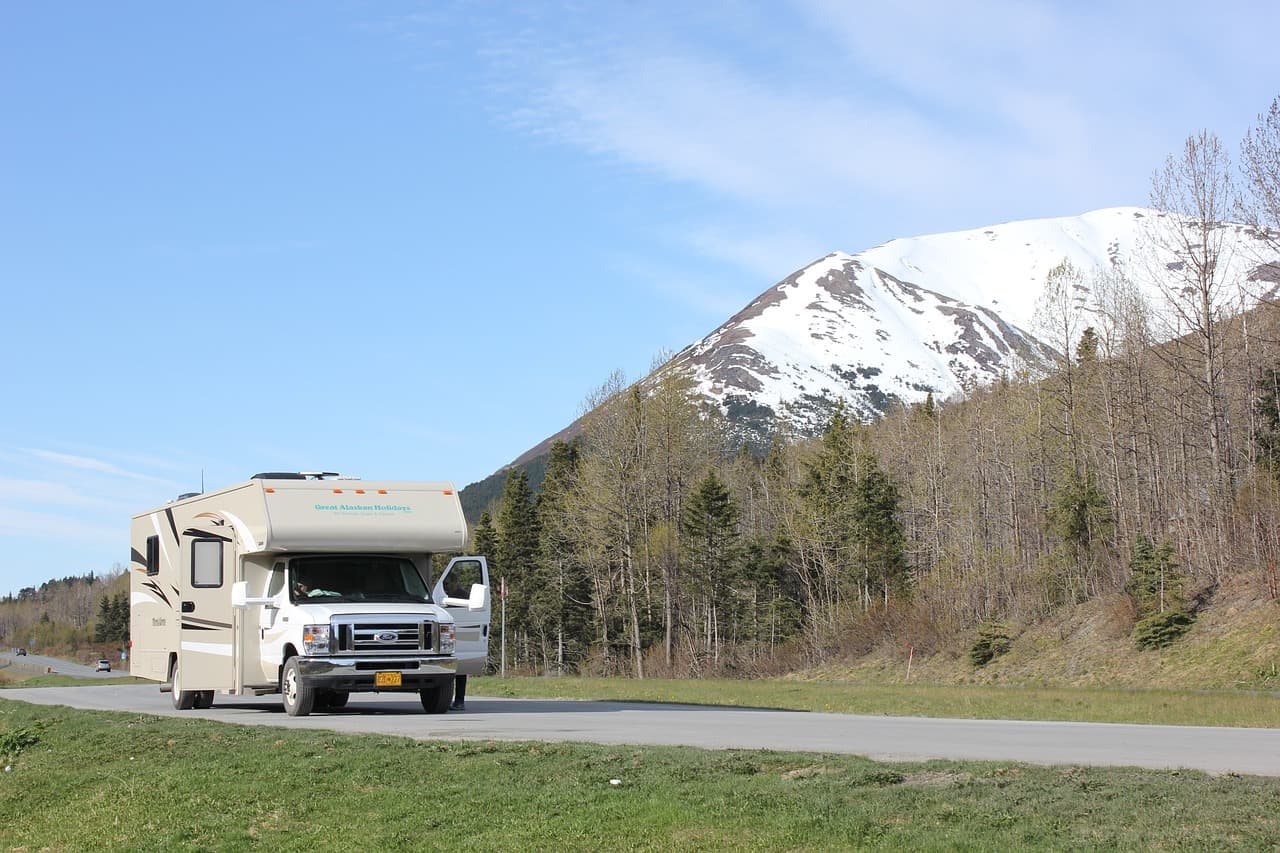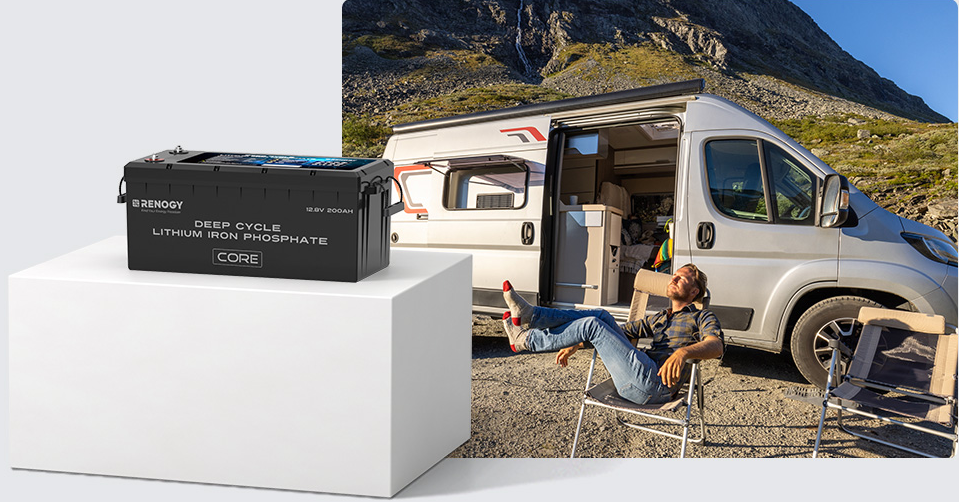How Much Solar Do I Need for My RV?
If you are a camping enthusiast who is eager to get off the grid and achieve electrical independence, then before starting solar, you need to know how much solar you need for your RV and determine the size of your solar system. This article provides detailed steps to help you determine the solar power your RV needs and the factors you need to consider before going solar.

How much solar do I need for my rv?
To determine the electricity needs for your RV, we recommend making a list of all the appliances and devices you plan on running.The main appliances to take into consideration when addressing energy needs may include a TV, lighting, water pump, laptop, fans, microwave, and refrigerator.
We recommend using the Renogy Solar Panel Calculator to help determine your specific energy needs. Having an accurate understanding of your needs will give you a better idea of the costs and ensure you don’t under- or over-build a system. If you’re brand new to solar, Renogy’s solar kits are a great solution and takes the headache out of making sure your components are compatible.
Calculate Daily Usage
Next, calculate the daily usage of each appliance in watt-hours (Wh). This involves: Finding the wattage of each appliance (usually found on a label or in the user manual). Estimating the number of hours you use each appliance daily. Multiplying the wattage by the hours used to get the total watt-hours per day.
For example, if your laptop uses 50 watts and you use it for 4 hours a day, it consumes 200 Wh per day.
Total Daily Consumption
Add up the daily usage of all your appliances to get the total daily power consumption in watt-hours.

How many solar panels do I need for my RV?
When you determine the power usage for your RV, you can calculate the numbers of solar panels you need for your RV. Here are several steps to help:
- Calculate your total daily power consumption: By adding up the daily electricity usage of the RV's electrical appliances calculated earlier, we can determine the total daily electricity consumption of the RV.
- Determine the average peak sunlight hours for your travel: locations.Research the average peak sunlight hours per day for the locations where you live. This varies by region and season. Peak sunlight hours are the equivalent number of hours per day when the sunlight is strong enough for your solar panels to operate at their rated capacity.
- Calculate the daily energy production per panel: This is done by multiplying the panel's wattage by the average peak sunlight hours.
For example, if you have a 200W solar panel and the peak sunlight hours is 5 hours, you can get the daily energy per panel: 200W*5=1000 Wh per day. - Determine the number of panels needed and adjust for inefficiencies: Divide the total amount of electricity your RV uses per day by the amount of electricity each panel can produce per day, and you’ll get the number of solar panels you need for your RV. For instance, if your total daily power consumption is 3000 Wh, Number of panels needed= 3000 Wh/1000 Wh(per day) =3 panels
Due to factors such as shading, dust and panel type, the solar efficiency of panels is not 100%, so the number of panels you need for your RV will be more than the number of solar panels calculated using the above method.
Solar panel efficiency
Solar efficiency measures how well a solar panel converts sunlight into electricity. Under the same conditions, a high-efficiency panel generates more power. However, no solar panel converts 100% of absorbed sunlight into electricity due to factors like weather and shading causing energy loss. Additionally, Different solar panels have varying efficiencies.
Other things to consider when using solar in RV
Budget
How much are you willing to spend on your solar system? This will limit how many panels you’ll install, as well as specific technologies, such as batteries. For example, lithium ion batteries have a longer lifespan with high discharge and recharge rates, but they are the most expensive batteries. Also, monocrystalline panels are more space-efficient than polycrystalline panels, but they are also more expensive. Factors like this show you that you may have to make some compromises when installing your solar system.
Space
How much square footage do you have to work with on your roof? If you’re dealing with a small space on your roof, you’ll either want to install just a few roof-mounted panels or use portable solar panels. Many portable solar panels are available as a folding-suitcase style kit, meaning you can just set them out on the ground and start collecting energy. Renogy has a range of both roof-mounted and portable solar panel kits.
Storage
How many batteries will you have in your RV? If you only have the budget and space for a few batteries, you won’t want to install an excess of solar panels for your RV. If you do, you’ll just be wasting money on solar panels that will collect energy that won’t be able to be stored.
Location
Will you be travelling or living in sunny, hot environments or cloudy, cold climates? For example, if you live somewhere with steady sunshine a majority of the year, you’ll be able to collect and store plenty of energy to power your appliances. If you’ll be travelling in a rainy climate, you may not have enough energy input to generate large amounts of power to cover all your energy needs.
In addition, batteries operate best in a cool environment. If it’s too hot, they may overheat. On the other hand, very cold temperatures also have a negative impact on your batteries because they have to work harder and at a higher voltage to charge. Keep this in mind when sizing your system and selecting batteries. For more information about battery bank sizing, check out our blog post.

Conclusion
Adding solar panels to your RV can be a great way to affordably meet your energy needs and stay happy and comfortable on the open road. There’s a lot of factors to weigh when it comes to sizing your system, including budget, space, energy use, and environment. Taking the time to consider these different elements will ensure you have an efficient system you’ll be in love with for many years.
FAQ
Which type of solar panel is best for RVs?
Portable solar power systems or flexible solar panels are ideal for RVs. They are smaller, easier to install, sometimes foldable, and cost-effective compared to ground-mount or rooftop solar panels.
Can you run an RV air conditioner with solar power?
Yes, you can run an RV air conditioner with solar power, but it can be difficult and costly due to the high power requirements of air conditioners. The key components needed for a solar-powered RV air conditioner are batteries, solar panels, and inverters, which need to be sized appropriately.











